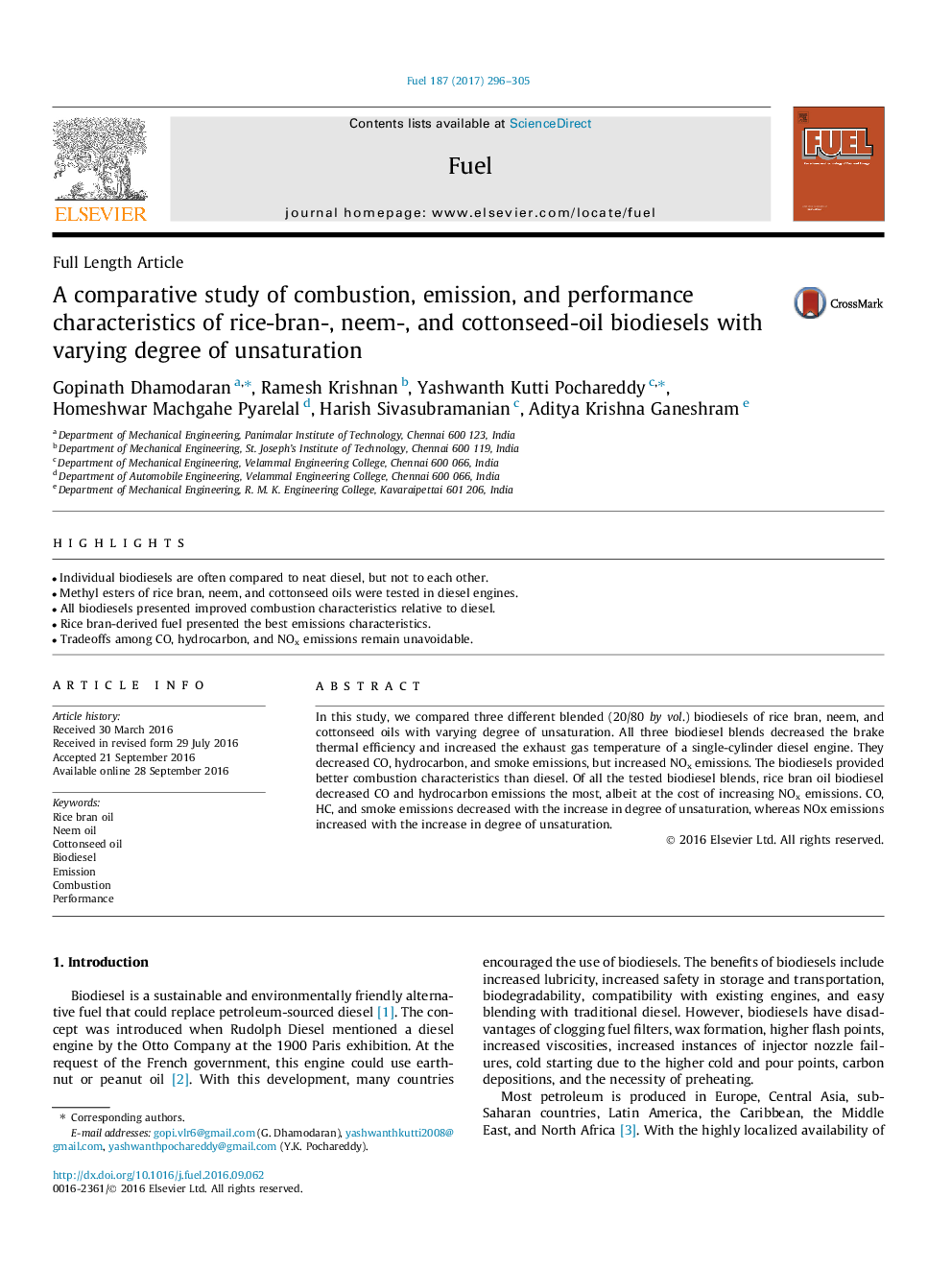| کد مقاله | کد نشریه | سال انتشار | مقاله انگلیسی | نسخه تمام متن |
|---|---|---|---|---|
| 6475962 | 1424977 | 2017 | 10 صفحه PDF | دانلود رایگان |
- Individual biodiesels are often compared to neat diesel, but not to each other.
- Methyl esters of rice bran, neem, and cottonseed oils were tested in diesel engines.
- All biodiesels presented improved combustion characteristics relative to diesel.
- Rice bran-derived fuel presented the best emissions characteristics.
- Tradeoffs among CO, hydrocarbon, and NOx emissions remain unavoidable.
In this study, we compared three different blended (20/80 by vol.) biodiesels of rice bran, neem, and cottonseed oils with varying degree of unsaturation. All three biodiesel blends decreased the brake thermal efficiency and increased the exhaust gas temperature of a single-cylinder diesel engine. They decreased CO, hydrocarbon, and smoke emissions, but increased NOx emissions. The biodiesels provided better combustion characteristics than diesel. Of all the tested biodiesel blends, rice bran oil biodiesel decreased CO and hydrocarbon emissions the most, albeit at the cost of increasing NOx emissions. CO, HC, and smoke emissions decreased with the increase in degree of unsaturation, whereas NOx emissions increased with the increase in degree of unsaturation.
Journal: Fuel - Volume 187, 1 January 2017, Pages 296-305
